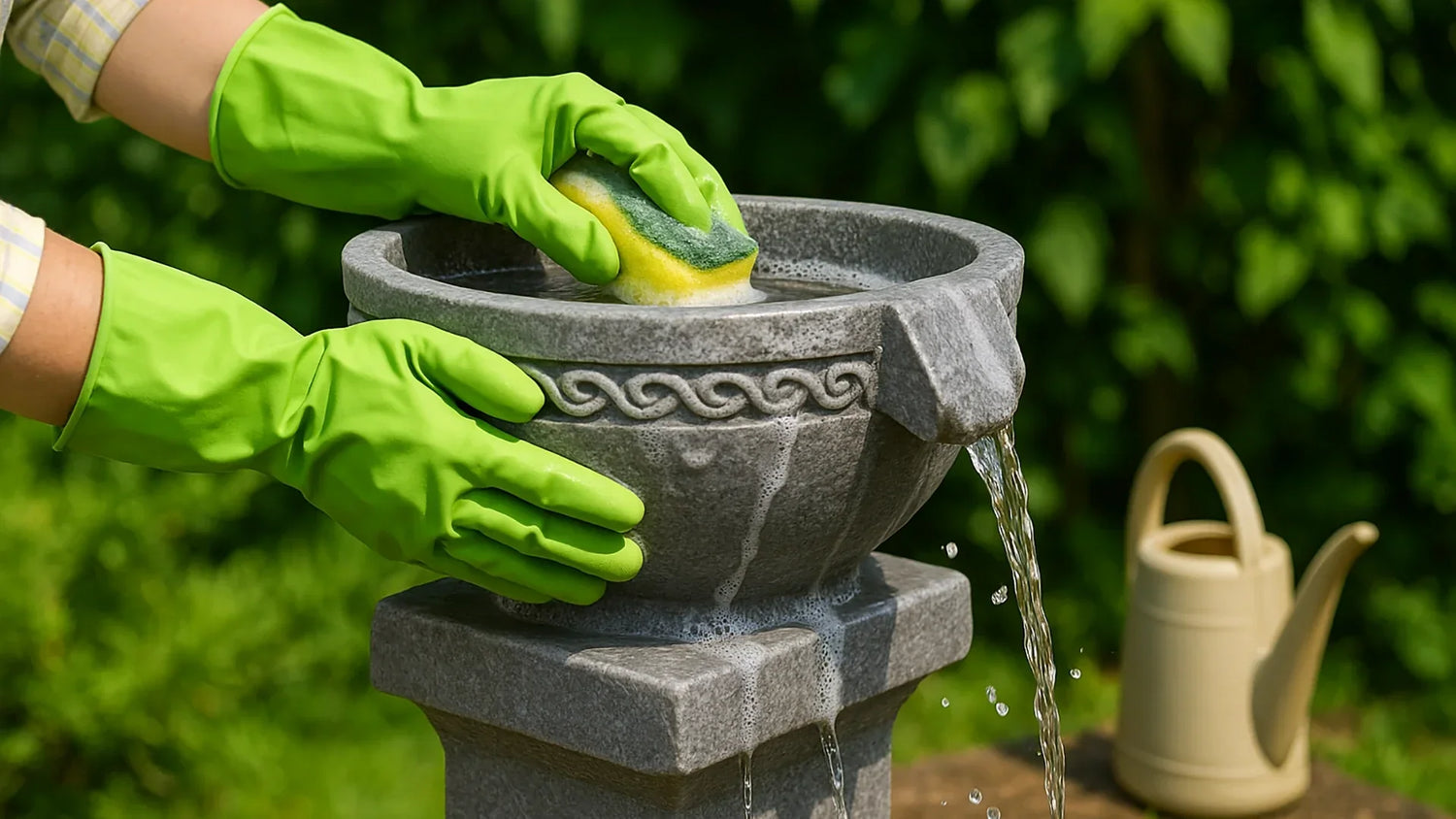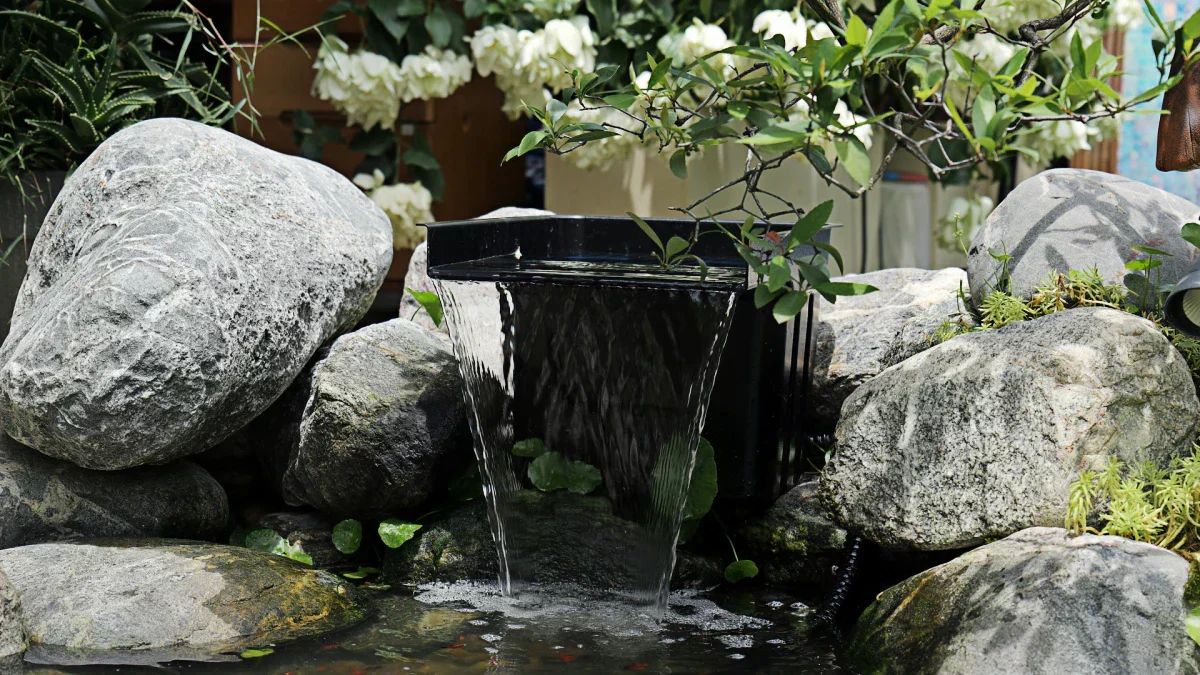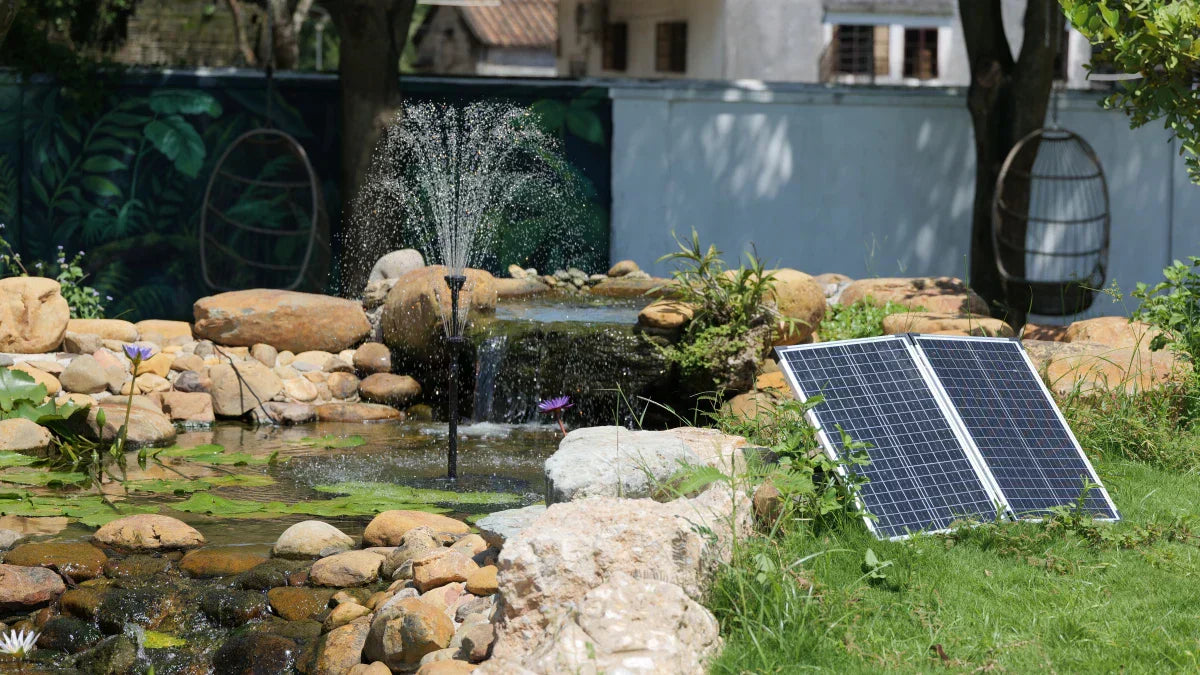A birdbath can turn a garden into an oasis. Any backyard naturalist loves to watch sparrows bathing or finches sipping from fresh water. But, for as much as birdbaths invite wildlife into close proximity, they also require regular care. If not tended to, stagnant water in a birdbath provides a fertile environment for algae, bacteria, and even bird disease. So, scrubbing a birdbath is not just a cosmetic task—it's about rendering the bath a healthy, inviting space for feathered visitors.
The Need for Clean Birdbaths
Birdbaths are utilized by birds both for drinking and for cleaning their feathers. Clean water helps them moderate body temperature and maintain their plumage well. However, stagnant or dirty birdbaths can quickly compromise their health. By following a regular cleaning schedule, you not only protect neighborhood birds but also maintain your garden as a safe sanctuary.

Poposoap, a provider of environmentally friendly garden water features, emphasizes that water quality is the secret to beauty and sustainability. Their solar fountains and pond kits, which are self-contained, circulate the water to reduce debris and simplify bird-friendly pond maintenance on an ongoing basis.
Risk of Toxic Algae and Bacteria
When neglected, birdbaths quickly become filled with droppings, dust, leaves, and insects. Warm, stagnant water fosters unhealthy algae and bacteria like Salmonella, which can sweep through flocks and sicken birds. Mosquitoes also breed in stagnant water, creating hazards not just to birds, but to people and pets as well.
Circulating water, such as that provided by a Poposoap solar fountain pump, minimizes these problems by circulating and aerating water. Circulation alone is not sufficient, though—you should still perform regular cleaning to provide clean bird water and have a healthy environment.
Safe Cleaning Methods
When cleaning a birdbath, the goal is to remove grime and encrustation without leaving behind residues that are toxic. Bleach, soaps, or abrasive chemicals can be harmful to birds if not thoroughly rinsed. Use safe, bird-friendly alternatives instead:
- Empty the Bath: Drain all stagnant water.
- Scrub the Basin: Dislodge grime and algae with a stiff brush.
- Rinse Thoroughly: Flush with fresh water until there is no residue.
- Refill with Fresh Water: Ideally rainwater or filtered, as it has no chlorine.
For larger birdbaths connected to ponds, combination with a Poposoap pond filter box ensures further water clarity.
Natural Cleaning Agents

Sometimes scrubbing with plain water is not enough, especially when there has been an algae build-up. Luckily, you don't need harsh chemicals. The following are natural and bird-friendly alternatives:
- Vinegar Solution: Mix one part white vinegar with nine parts water for a strong, yet gentle clean.
- Baking Soda Paste: Great for scrubbing stubborn stains without hurting surfaces.
- Hydrogen Peroxide (Food Grade, Diluted): Disinfects without toxic residues being left behind.
These methods are harmonious with the environment, reducing harm to wildlife while giving homeowners reliable, safe cleaning advice.
How Often to Clean
Frequency depends on use and climate. During hot, sunny weather, clean your birdbath at least two to three times a week. During cooler seasons, cleaning once a week might suffice. If your birdbath has circulating water from a Poposoap solar fountain or floating fountain, you may be able to go a little longer between cleanings since circulation slows down algae development.
Watch for water clarity—if it's murky or you see film building up, it's time to clean. Birds notice clean water and will visit a consistently clean source more frequently.
Maintenance Best Practices

For long-term birdbath health, attempt these additional eco pond tips:
- Position Wisely: Place birdbaths in shade to slow algae growth.
- Add Motion: Place a small fountain or dripper to circulate water continuously. Poposoap provides solar-powered models with no wiring necessary and promotes sustainability.
- Use Safe Accessories: Painted or treated basins should be avoided, as they can leach chemicals into the water.
- Monitor Wildlife: If diseased birds are seen, temporarily discontinue the use of the bath to halt the spread of disease.
- Winterize: In cold climates, utilize a heater or take the bath inside to ensure freezing is avoided.
By combining strategic placement with reliable items like Poposoap's solar fountains, filters, and pond lights, your garden water features can be clean, safe, and inviting twelve months out of the year.
Final Thoughts
A birdbath isn't merely decoration—it's a lifeline for your yard's birds. Regular birdbath cleaning not only offers clean bird water but also protects bird health, reduces algae and bacteria risks, and helps keep your garden ecosystem thriving.
Through bird-friendly birdbath maintenance, supported by natural cleaning methods and organic tools, you can enjoy the simple pleasure of healthy birds visiting your garden. For those individuals wishing to combine aesthetics with ecology, Poposoap's range of eco-friendly pond products makes the job of caring for your birdbath as well as the environment a lot easier.





Leave a comment
All comments are moderated before being published.
This site is protected by hCaptcha and the hCaptcha Privacy Policy and Terms of Service apply.